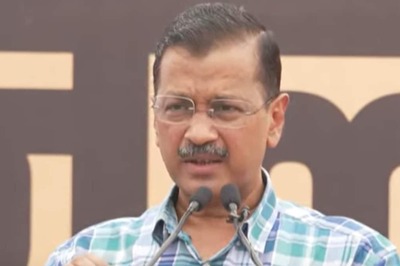
views
The Public Accounts Committee (PAC) has flagged multiple issues and delays in the procurement of clothing, equipment and ration for soldiers in high-altitude regions, suggesting that the government should separate budget heads for such items as well as provisioning of accommodation. The PAC has added that there should be a clear explanation for resorting to recycling soldiers’ boots.
In its 55th report tabled in Lok Sabha, the high-level parliamentary panel has urged a comprehensive review of items required for high-altitude areas to meet the needs of jawans deployed in difficult weather conditions. The committee has further suggested that PSUs should build more underground oil tankers to fulfil fuel demands in forward areas like Ladakh.
The PAC, headed by Congress leader Adhir Ranjan Chowdhury, also examined the CAG report on provisioning and procurement of clothing, equipment, ration for 2015-16 to 2017-18.
On Ration, Housing
The committee has expressed the view that it may be ideal to have separate budget heads for clothing, equipment, ration and housing for soldiers in high-altitude areas. Having separate budget heads, the committee feels, would help in troops being provided commensurate clothing, equipment, housing facility and ration.
On Clothing
Given the disadvantages of emergency procurement and also the fact that Extreme Cold Climate Clothing and Equipment (ECC&E) and Special Clothing and Mountaineering Equipment (SCME) products are highly price sensitive to volumes, the committee has recommended that economies of scale be built into the procurement process which would help in lowering costs as well as the reserve requirement.
The PAC also recommend that the task of building reserves may be completed within a specific timeframe and they be kept apprised of the progress.
On Boots
The PAC said that had there been no shortage, as claimed, there would be a need to have a clear explanation for having resorted to recycling the boots. This incongruence in the information furnished also raises questions on the efficacy of systems in the ministry in providing information and data that is consistent and accurate, it said. The committee desired that the matter may be reconciled and they be apprised thereof.
Procurement of HACE Items
The committee recommended that the Defence Ministry may consider overhauling the contracting process with vendors where there are more built-in contractual responses and contractual liabilities on the vendors and the contracts are not open to subjective interference or interpretation.
The PAC said it would prefer the ministry signing contracts for longer periods with appropriate performance and product guarantees as constituent provisions of the contract. It added that the Army may consider evolving a process whereby vendors who are not conversant with online processes may also be allowed to bid in the procurement process. The committee was of the view that a mechanism needs to be evolved to ensure outcome-oriented monitoring of expenditure and revenue and capital procurement, which would also aid in reduction of procurement timelines.
On Sleeping Bags
The committee said there should be no compromise on the quality of products being used by army personnel at extreme high-altitude areas. Whatever type of products are more suitable for the climate of a particular area, only such products need to be procured. It hoped that the Army had a sound and objective understanding of the type of sleeping bags required at varying heights and regions. It said a comprehensive review of such requirements may be made for all high-altitude areas and the products be procured accordingly to meet the needs.
It said that the medical facilities being provided to the troops at forward locations be made more comprehensive so that soldiers do not have to risk health hazards.
Fuel Storage
The PAC further said that oil PSUs should construct more underground storage tanks as part of their CSR activities so troops deployed at forward locations in high-altitude areas do not face any inconvenience due to fuel shortage. It also impressed upon the administrative ministry to explore the possibility of other energy sources based on solar, wind and other hybrid-based technologies with the help of PSUs under the Ministry of New & Renewable Energy so that dependence on kerosene-based bukharies can be minimised.
Read all the Latest India News here



















Comments
0 comment